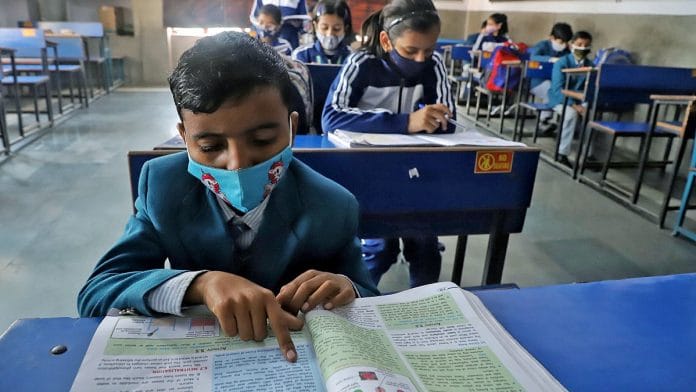New Delhi: The inability of the Municipal Corporation of Delhi (MCD) to procure books for children in its schools amounted to an admission that the Delhi government is at a standstill owing to the absence of the chief minister, the Delhi High Court observed Monday.
Delhi CM and Aam Aadmi Party (AAP) national convener Arvind Kejriwal is in jail in connection with a case registered by the Enforcement Directorate over alleged irregularities in the 2021-22 Delhi excise policy, which the government later withdrew.
A division bench of Acting Chief Justice Manmohan and Justice Manmeet P.S. Arora gave directions to the MCD commissioner to procure the books even if it involved exceeding the Rs 5 crore budget set for the purpose, while rejecting that the chief minister has to approve any increase in the financial powers of the commissioner.
The bench criticised government inaction in ensuring critical supplies for school children due to Kejriwal’s absence, saying, “A chief minister’s post in any state, let alone a buzzing capital city like Delhi, is not a ceremonial post… National interest and public interest demand that no person who holds this post is incommunicado or absent for a long stretch of time or for an uncertain period of time.”
Calling the decision of Kejriwal to continue as Delhi CM despite the court refusing his petition, as “personal”, the bench said that it, however, did not mean that “if the chief minister is not available, the fundamental rights of young children would be trampled upon and they would go through the first term (1 April-10 May) without free textbooks, writing material, and uniform”.
The bench made these observations while hearing a petition by a civil rights group, contending that the Delhi government has denied over six lakh school children educational material such as textbooks due to the absence of the chief minister. The same, the petition contended, violated the Right to Education Act, 2009, which guarantees free education, and other state and central rules on the disbursal of such material.
The crux of the matter is that despite the MCD having the legal responsibility to provide such school material to students, it does not have the financial powers to procure them. Such power is vested with the MCD’s standing committee, which has been non-functional for a year after concerns were raised over its election process.
The fate of this committee is pending before the top court.
In this context, the Delhi High Court last week called for vesting in the MCD commissioner the financial powers to procure such material to resolve the issue.
However, according to the Delhi government, there was no such move as it would require the approval of chief minister, who is currently lodged in Tihar.
Justice Manmohan said benefits for school children are not only guaranteed by legislation under the RTI Act but also constitutionally guaranteed by Article 21A of the Constitution, which provides children between the ages of 6 and 14 the right to free education.
It also said nothing has stopped the Delhi government from introducing a suo motu resolution in the MCD House to empower the commissioner to procure the school material. “…[T]he submission of learned counsel for the GNCTD (Government of National Capital Territory of Delhi), blaming other institutions, amounts to nothing but ‘shedding of crocodile tears’,” the court added.
It also dismissed an alternative proposal by Delhi government counsel Shadan Farasat to allow the MCD House to approve such spending on school material to ensure democratic control as a “red-herring”, saying the real issue is that of power.
“The real issue is of ‘power’, ‘control’, ‘turf dominance’ and ‘who takes the credit’,” the court said.
It also said it was impractical to wait longer and the submission by the Delhi government did not account for the importance of the issue at hand.
“The submission that the contract for procuring these statutory benefits should await the approval from the House exhibits complete lack of appreciation for the urgency in the matter and shows apathy by both the GNCTD and the mayor for the well-being of the students and their statutory and fundamental rights,” the court said.
“The inability of GNCTD to act with alacrity and respond to the urgency of the issue at hand, exhibits its indifference towards the plight of the students enrolled in MCD schools and is a willful violation of the fundamental rights of the said students,” the court noted.
(Edited by Madhurita Goswami)






